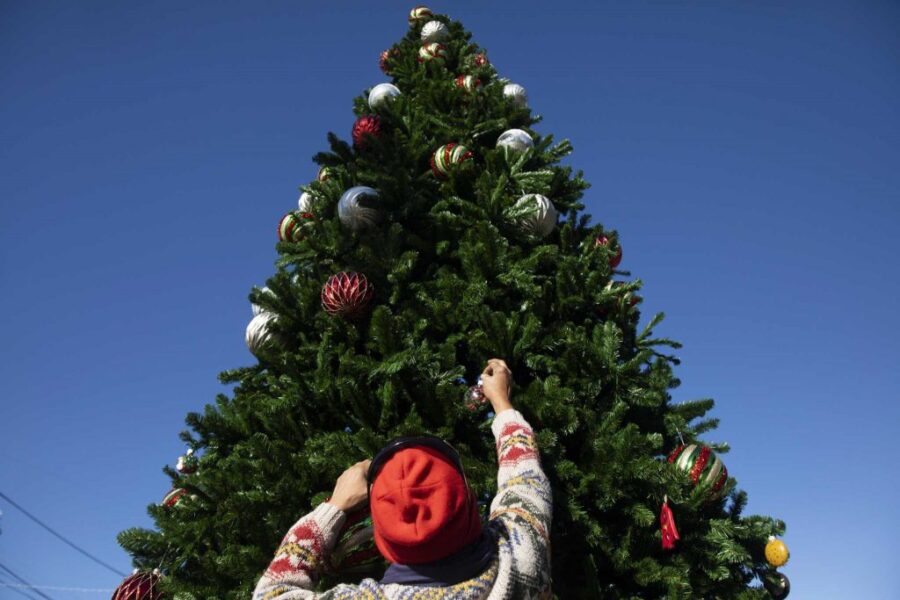
What do Muslims do on Christmas?
Christmas trees go up, presents are bought and there’s a festive sheen to the cold, frosty landscape.
Whilst we enjoy the holidays, marvel at the lights and utilise the Christmas sales, Muslims do not celebrate Christmas like everybody else.
This is not just pertinent to Muslims, but Jews also do not practise Christmas.
Why do Muslims not celebrate Christmas?
Whilst Christmas is associated with Christianity, many who celebrate Christmas may not identify with Christianity. Some may not have any faith at all. Others may have a different religion but partake in the jolly festivities.
After all, Christmas is a time to remember family and gift-giving, which is something everyone can get on board with.
Whilst it may seem like a harmless practice, celebrating Christmas as a Muslim can dilute your belief system.
Muslims do not believe the birth of Jesus Christ happened at Christmas, which is one reason why we do not celebrate.
Another reason is that the origins of Christmas have become intertwined with pagan celebrations.
The origins of Christmas
The origins of Christmas stem from celebrating the birth of Jesus Christ. Many of you may remember partaking in a Nativity at school, whereby we had the three wise men, Mary, Joseph, and the gifts of Gold, Frankincense and Myr, surrounded by a barn full of animals.

So how does this tie in with decorating a tree, gift giving and Santa clause?
The Winter Solstice
Before Jesus was born, the winter solstice, the longest night, was celebrated by a variety of cultures around the world. It was celebrated to signify the birth of shorter nights that would follow after. In Scandinavia, the Norse celebrated Yule to signify the return of the sun.
Around the same time, Romans observed Saturnalia. This is a holiday to honour Saturn, who was believed to be the god of agriculture. During the month, food and drink were plentiful and slaves were given temporary freedom and treated as equals. Schools and traders would close up so everyone could participate in the holiday festivities.

During this time in England, the birth of Christ wasn’t celebrated. In fact, the only religious holiday recognised in Christianity during this time was Easter. It was only in the fourth century that church officials instituted Jesus’ birth to be a holiday.
Interestingly, the bible does not mention the birth of Jesus. Whilst some evidence points to it being in spring, Pope Julius the First chose December 25th.
There is a high probable chance that this date was chosen in order to adopt and absorb traditions of the pagan festival, Saturnalia.
It is believed that the winter solstice was purposefully chosen to celebrate Christmas as it would increase the chances of the holiday being embraced by the masses.
Interestingly enough, during the 17th century, a wave of religious reform hit England. With Oliver Cromwell came a bid to rid England of decadence. Anyone exhibiting the Christmas spirit was fined five shillings.
However, Christmas was soon introduced and embraced. Popular literature in the 1800’s such as ‘A Christmas Carol‘ by Charles Dickens and ‘A Little Matchstick Girl’ by Hans Christian Anderson also added to Christmas being a time of year for generosity, family and gifts.
This struck a powerful chord in the US and the UK. With the public becoming more sensitive to the emotional needs of one’s family, Christmas soon became a time to spoil one’s child through gifts and attention.
The birth of Santa Clause
The idea of Santa Clause dates back to a Monk named St. Nicholas. Born in Turkey around 280AD, St. Nicholas gave away all of his inherited wealth and travelled the countryside helping the poor and sick. He became known as the protector of children and sailors.
St. Nicholas day became an international celebration. Every December 6th, the faithful celebrated all over the world, with the largest gatherings taking place in Europe.
Whilst the shapeshifting of St. Nicholas to Santa Clause happened steadily over the decades, one clincher was a Christmas poem written by Clement Clarke Moore in 1822. It was called “A Visit from St. Nicholas,” more popularly known today by its first line: “‘Twas The Night Before Christmas.”
The poem depicted Santa Claus as a jolly man who flies from home to home on a sled driven by reindeer to deliver toys.
The iconic version of Santa Claus as a jolly man in red with a white beard and a sack of toys was immortalized in 1881, when political cartoonist Thomas Nast drew on Moore’s poem to create the image of Old Saint Nick we know today.

So what do Muslims do on Christmas?
Whilst those celebrating Christmas may wonder what Muslims do during Christmas, it’s nothing extraordinary or alien as people may think.
We utilise the time to get family together and spend quality time with one another.
Whilst we do not indulge in the festivities of Christmas, we still understand, respect and partake in the holiday of the season.
SOURCE : https://www.invitation-magazine.org/what-do-muslims-do-on-christmas/

